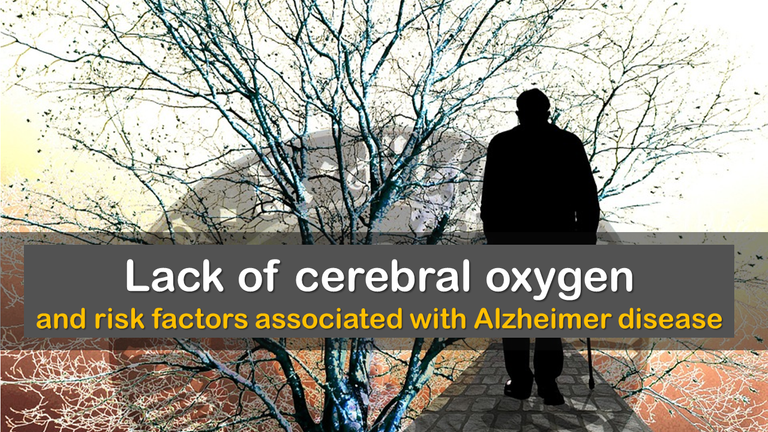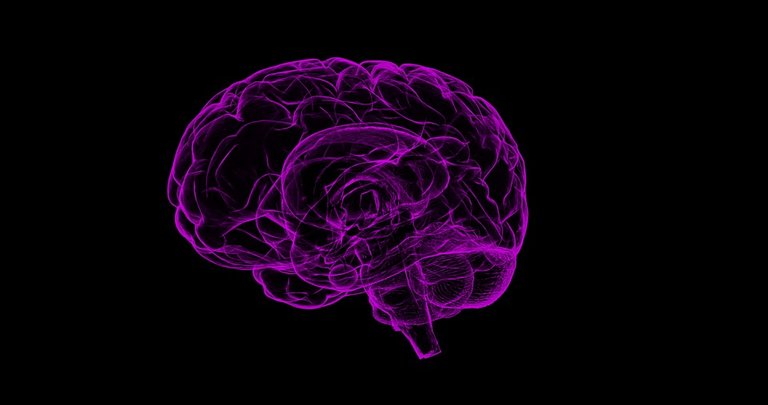Lack of cerebral oxygen and risk factors associated with Alzheimer disease

Greetings friends of @Projet.HOPE, as you know I am passionate about writing about health issues, specifically on issues related to the use of plant species with phyto-pharmacological capacity, hence I like to read and consult scientific journals of medical sciences in order to access information related to health in general.
In this regard, I must tell you that I recently found valuable scientific information that I will be sharing with all of you about the negative effects of the absence of cerebral oxygen and the risk factors that this deficiency has on the development of Alzheimer's disease at an early age.

Fig. 2 Lack of cerebral oxygen accelerates Alzheimer's progression. Image of public domain, Author: Sbtlneet, 2016
As a pathology, Alzheimer's for medical sciences has been interpreted as the most common cause of dementia in the elderly, in other words, it is a kind of memory loss, delirium or temporary hallucination that affects the biological way of thinking, reasoning, additionally Alzheimer's is considered as a disease capable of altering the behavior, skills, and the way a person relates to their environment.
It has been pointed out that Alzheimer's disease begins to manifest itself in people over 60 years of age, affecting first the parts of the brain that control thought, memory and language, elements that make it impossible for the person who suffers it to live independently.

Fig. 3 Alzheimer's begins to manifest memory loss. Image of public domain, Author: Tumisu, 2020
Now, something that caught my attention is that even though the exact biological cause of Alzheimer's disease is unknown, a research published in Nature Aging infers that the hypoxia that cells in the brain may experience triggers the onset of Alzheimer's, i.e. the lack of oxygen in the brain may contribute to the progression of Alzheimer's disease.
This indicates that, when the oxygenation of the brain is hindered by some anomalous event that affects the oxygen supply to the brain, a progression of Alzheimer's is automatically generated. These results are of great relevance since they provide important data for the search of pharmacological agents that can improve the oxygenation of the brain in elderly people and thus avoid the early onset of Alzheimer's disease.
BIBLIOGRAPHICAL REFERENCES CONSULTED:
[1] March R Hypoxia compromises the mitochondrial metabolism of Alzheimer’s disease microglia via HIF1. Nature Aging. 2021; 1: 385 – 399. Article: Online access
[2] Ferreira M Alzheimer’s disease: risk factors and potentially protective measures. Journal of Biomedical Science. 2019: 26: 33. Article: Online access
OBSERVATION


0
0
0.000
@tipu curate 2
Upvoted 👌 (Mana: 24/48) Liquid rewards.
Thank you for your support of the publication.
Your post has been voted as a part of Encouragement program. Keep up the good work!
Use Ecency daily to boost your growth on platform!
Support Ecency
Vote for Proposal
Delegate HP and earn more
Greetings to the @ecency curation team, I appreciate the support given to the publication.